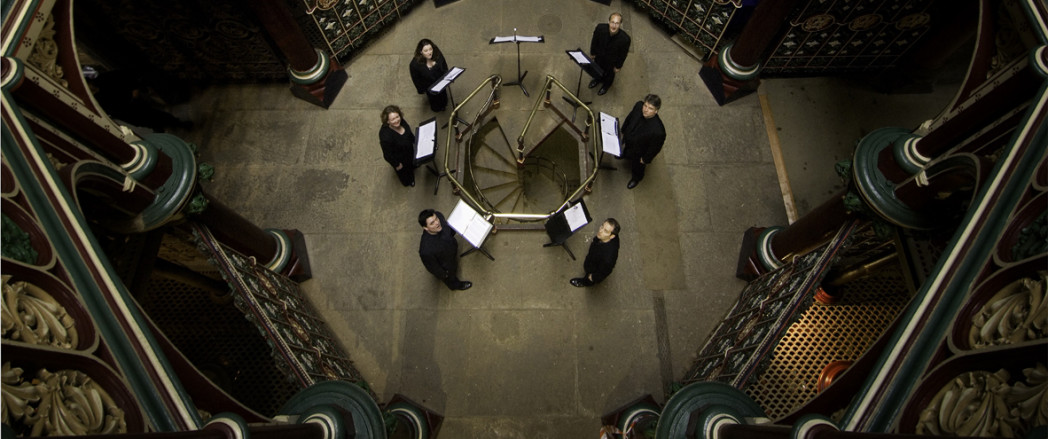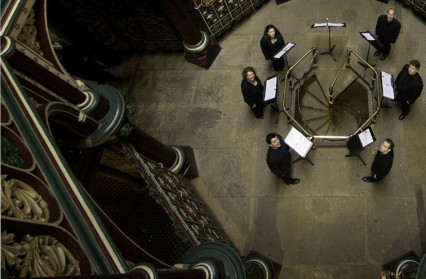St David’s Hall, Cardiff, 13 March 2016
Organ: William Whitehead
Artistic Director: Edward Wickham
Singers: Helen Neeves, Nina Bennet, Ruth Kiang, Roy Rashbrook, James Arthur and Edward Wickham
and from The Spectrum Singers, The Canton Chorus, The Welsh Camerata
If anyone in the audience for this concert had doubts about it starting with an audience hymn, albeit one with music by Johann Sebastian Bach, their concerns were surely dispelled by the piece which followed it. Iain Farrington’s chorale prelude Herr Gott, dich loben alle vir took Bach’s melody from the hymn we had sung, All people that on earth do dwell, and surrounded it with jazzy sparkle and spice. Played with brio by organist William Whitehead, this was a splendid introduction to one of the themes of the concert, the Orgelbüchlein project.
This project, which is being curated by William Whitehead, seeks to complete Bach’s compendium of short chorale preludes for the church year, of which he himself composed only 46, with 118 new pieces commissioned from present day composers. We were treated to two more of these, in contrasting styles: Jacques van Oortmerssen’s Nun ruhen aller Wälder, with its bell-like motif, and Naji Hakim’s Spiritus sancti in which shades of Messiaen (who Hakim succeeded as organist at La Trinité in Paris) mingled with middle-eastern influences. In Whitehead’s project diverse contemporary writing nonetheless follows, stylistically, directly in Bach’s footsteps, as the inclusion in the programme of several of Bach’s own preludes demonstrated, each encompassing in one form or another, the melody of the corresponding sung chorale.
The six singers from Edward Wickham’s early music group The Clerks were joined for the chorales by singers from three local choirs. The additional forces added heft and muscularity to the sound, contrasting with the delicacy of the sextet of professionals singing alone in other parts of the concert.
Although Edward Wickham called this concert ‘The Secret Life of J S Bach’, this title was, as he says in the programme, intended as “a playful provocation”, for Bach’s life has been so closely scrutinised that there can be no part of his life which remains secret. What this concert set out to do was provide an antidote to the over-pious view of the composer which can prevail in scholarship. He was a genius but he was also a man with human passions and appetites. In The Arnstadt Passion Wickham and his frequent collaborator, the composer Christopher Fox, demonstrated amusingly some of the consequences of Bach’s waywardness as an organist and Kantor, notably the problems which the congregrations of the German town of Arnstadt experienced when he improvised too effusively around the chorales, leaving them unable to find the pitch or the beat. The words ‘pulling out all the stops’ in this context referred to the singers as much as the organist!

In more serious vein, The Clerks gave us a context to the development of Bach’s composing. It was not something that came from nowhere, fully-formed, but was born of painstaking copying of earlier composers’ works. Here the expression ‘the secret life of J S Bach’ perhaps does have a real meaning, for, we were told, he had to educate himself from a manuscript which he had to secretly pull out at night through a grill within which his elder brother Christoph kept it locked. Whether this story of the ‘Moonlight Manuscript’ is true or apocryphal, Johann Sebastian certainly learnt his trade from copying out the works of the composers who preceded him in the seventeenth century, some of whom were progressives of whom we hear almost nothing today, such as Johann Caspar Kerll. The Clerks sextet gave us a taste of Kerll’s Requiem as well as a Pachelbel Magnificat, and William Whitehead played a Praeludium in E Minor by Nicolaus Bruhns, generally regarded as one of the masterworks of the North German organ tradition and of fiendish proportions for the copyist.
The Clerks went on to demonstrate cleverly how Bach was influenced by Renaissance polyphony by weaving music from the B Minor Mass into the Agnus Dei from Palestrina’s Missa Sine Nomine.
This was not just another concert of beautiful and interesting music. It was more like a richly illustrated lecture. The anecdotes – shared seamlessly between the sextet – about Bach’s misdemeanours such as absenteeism from major services for two years were amusing and informative. William Whitehead’s organ playing was supreme, the singing of The Clerks’ sextet translucent. But more than anything, Edward Wickham and his team created a vessel within which it was J S Bach’s devotion to God through his music that shone through. To hear the motet Jesu Meine Freude encircled by all that had gone before and some that has come after was to be enabled to hear it afresh, enlivened and uplifted, the polyphony precise and beautifully tuned by the voices of these six peerless interpreters. In the ‘Trotz’ section and most especially for me ‘Gute nacht’, everything else fell away. There was, quite simply, heavenly music.
This was a wonderfully enjoyable and illuminating concert.



 Enjoyed this article? Support our writers directly by buying them a coffee and clicking this link.
Enjoyed this article? Support our writers directly by buying them a coffee and clicking this link.







